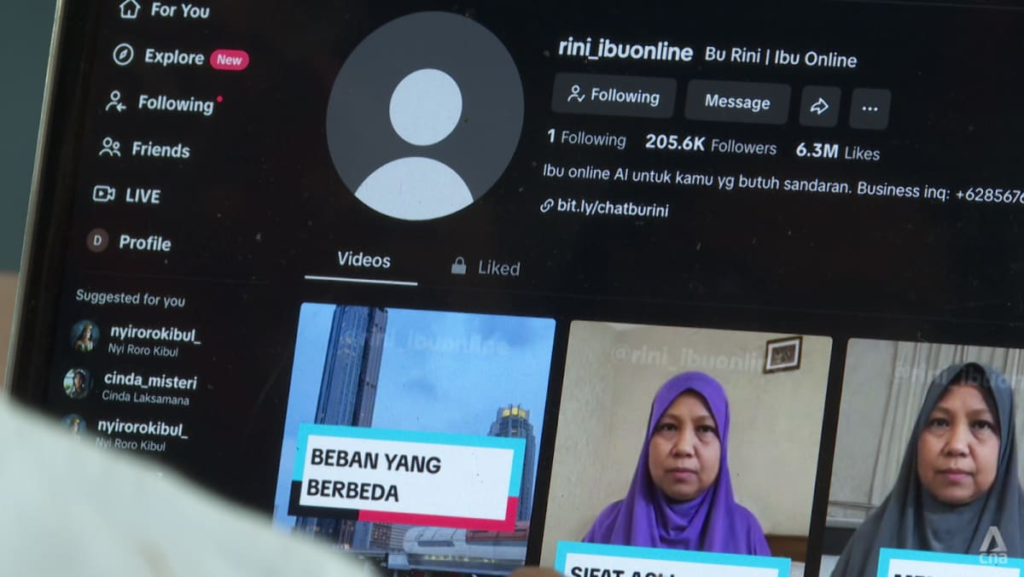“Ibu Rini” is a popular social media influencer in Jakarta who provides advice to young people on relationships and health through platforms like Instagram and TikTok. Despite appearing like any other influencer at first glance, she is actually an artificial intelligence created by Avatara Labs. With over 230,000 followers and millions of likes on her videos, Ibu Rini delivers content that educates viewers on appreciating their partners and other important topics. She also engages with her audience through live streams, with some sessions attracting over 2,500 viewers in just an hour.
Avatara Labs, the company behind Ibu Rini, is transparent about her AI origins and makes it clear on her accounts that she is not a real person. Co-founder and CEO Ananto Wibisono stresses the importance of ethical practices and honesty when interacting with audiences, emphasizing the need for transparency in the use of AI. This approach aligns with a circular issued by Indonesia’s Communications and Informatics Ministry, which emphasizes the importance of upholding values such as transparency, credibility, and accountability in the use of AI technology.
The rise of AI-powered influencers like Ibu Rini raises questions about the boundaries between human and artificial intelligence in the influencer industry. While some may view AI influencers as an innovative way to engage with audiences and deliver valuable content, others may be wary of the potential ethical implications of using AI in this context. As technology continues to evolve, it is essential for businesses and creators to maintain transparency and uphold ethical standards in their use of AI, especially in sectors like social media where trust and authenticity are paramount.
Despite the unique nature of Ibu Rini as an AI influencer, her popularity and success demonstrate the growing acceptance of artificial intelligence in the digital space. By providing helpful advice and engaging with her audience in a meaningful way, she has been able to connect with viewers and build a loyal following. As AI technology becomes more sophisticated and widespread, it is likely that we will see more AI influencers emerging in various industries, blurring the lines between human and machine-generated content.
As the use of AI influencers like Ibu Rini becomes more prevalent, it is crucial for businesses and creators to consider the ethical implications of this technology. Transparency, accountability, and credibility are key principles that should guide the use of AI in influencer marketing, ensuring that audiences are aware of the AI nature of these virtual hosts. By adhering to ethical standards and fostering trust with their audiences, companies can leverage AI technology effectively while mitigating potential risks associated with its use.
Overall, the case of Ibu Rini and Avatara Labs highlights the potential of AI in influencer marketing and the importance of ethical considerations in the adoption of this technology. By embracing transparency and upholding values such as credibility and accountability, businesses can harness the power of AI to engage with audiences in new and innovative ways. As AI continues to shape the digital landscape, it is essential for creators and organizations to prioritize ethical practices and maintain trust with their audiences, ensuring a positive and responsible use of this transformative technology.











